Brigitte Macron and Emmanuel Macron © President.gov.ua
Anything that French President Emmanuel Macron does seems to feed the rumour mill about his behaviour. It doesn’t have to make much sense as a signal to his friends and enemies, but it will undoubtedly be interpreted that way. During a television interview in March, for instance, after his watch had caused a noise by catching on the table, he removed it. It seems like a very sensible move. It was, as you’d expect, an expensive watch (his critics are still arguing over just how expensive) and it has been suggested that he removed it because the interview was about the financial inequalities of the French population and he thought the sight of an expensive watch would antagonise his enemies and the French people at large. People do get odd ideas. I think most French people would have been more surprised to see their president wearing a cheap watch. I expect he’s got more than one anyway. But his ownership or otherwise of personal timepieces is hardly relevant to the wider picture and is unlikely to count in international affairs.
Macron’s popularity is certainly in some doubt. It’s been argued that it relies more on public antipathy towards his far-right rival, Marine Le Pen, than it does on any affection for Macron himself, and that his most recent election win was down to the general dislike of Le Pen. On the face of it, he would be unlikely to win another election, although we’ll never know because France’s constitution restricts him to two consecutive terms of office. There’s nothing theoretically to stop him from choosing to run for a third term but not until 2032, and that’s still a long way away. His current term of office must end in 2027.
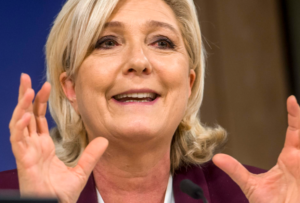
Meanwhile, Macron is trying to redraw France’s relationship with its former African colonies. It’s a sensible move, given that he wants them not only to succeed politically and economically but he also wants them to remain on friendly terms with their former colonial masters. That looks increasingly unlikely, however. Back in March, on a visit to Kinshasa, Macron made it plain that he sees the African countries as equal partners with France. He is busily trying to dispel France’s image in much of Africa as an arrogant former colonial power. That is not the image Macron wants to disseminate as he visits African countries that have long historical French links, some of them not very happy ones. Earlier this year, Macron shared his vision of renewing France’s relations with African countries based more firmly on equality. Despite that, however, France’s long history of colonialism has left its mark, and when Macron met the President of the Democratic Republic of Congo, Felix Tshisekedi, there were a number of small-scale protests organised that demonstrated an increasingly anti-French sentiment. Macron may favour closer links between France and her former colonies, but it doesn’t seem to be a sentiment that’s reciprocated.
In the case of the Central African Republic, France seems to have lost out to Russia’s brutal Wagner Group of mercenaries. Indeed, it’s been said that Macron abandoned the country to the Russian mercenaries deliberately, although as far as I know nobody has suggested a reason for doing so. The Republic itself is one of the world’s poorest countries, its 5.5-million inhabitants ranking 188th out of the 191 listed by the Human Development Index as being impoverished.

Wagner Group figure Dimitri Sytii is now listed by the EU for sanctions because of the brutal acts he has organised and overseen. Russia claims he was the victim of a parcel bomb in the capital of the CAR, Bangui, in which he suffered serious injuries. The Russians blamed France or Washington. He was later transferred to a hospital in Russia. That may sound kind and caring, but the Wagner Group stands accused of serious human rights abuses, including torture and “extrajudicial, summary or arbitrary executions and killings”, according to the UN. Those are not the sorts of things you’d like to have on your CV.
You will remember reports from Ukraine of Wagner Group soldiers boasting of having machine-gunned prisoners of war or of stranding them in a pit into which the Wagner troops threw hand grenades. They didn’t want the responsibility of having prisoners of war to look after. “We would torture soldiers, too,” the man boasted, “there weren’t any rules.” That may explain why nobody sane would choose to be governed or controlled by members of the Wagner Group, with their obscene love of excessive violence.
| THE KEY TO THE PIGGY BANK
We must recall, however, that it was Macron’s withdrawal from Africa that left the door open for the Wagner Group, and he must surely have known that they are notoriously brutal thugs. Sytii is also believed by the EU and by Washington to be the founder of a company called Lobaye Invest, dealing in mineral wealth mined in Africa, especially gold and diamonds. The company is subject to sanctions imposed by the EU and the US. Of course, very large sums of money are involved, so the Wagner Group does rather well for itself. In 2017, Russia informed the UN that it would like to send weapons to the CAR, which was under an arms embargo at the time. The UN agreed and Russia sent not only weapons but also advisors, sealed defence agreements, a political alliance and concessions on the gold and diamonds markets. It was a model that it can (and certainly will) export to other troubled countries. A large number of Wagner Group fighters have been killed but the Group itself has done quite well out of it; according to a diplomatic cable published by Politico, the CAR’s mines could provide the Wagner Group with some $1-billion (€0.9-billion).
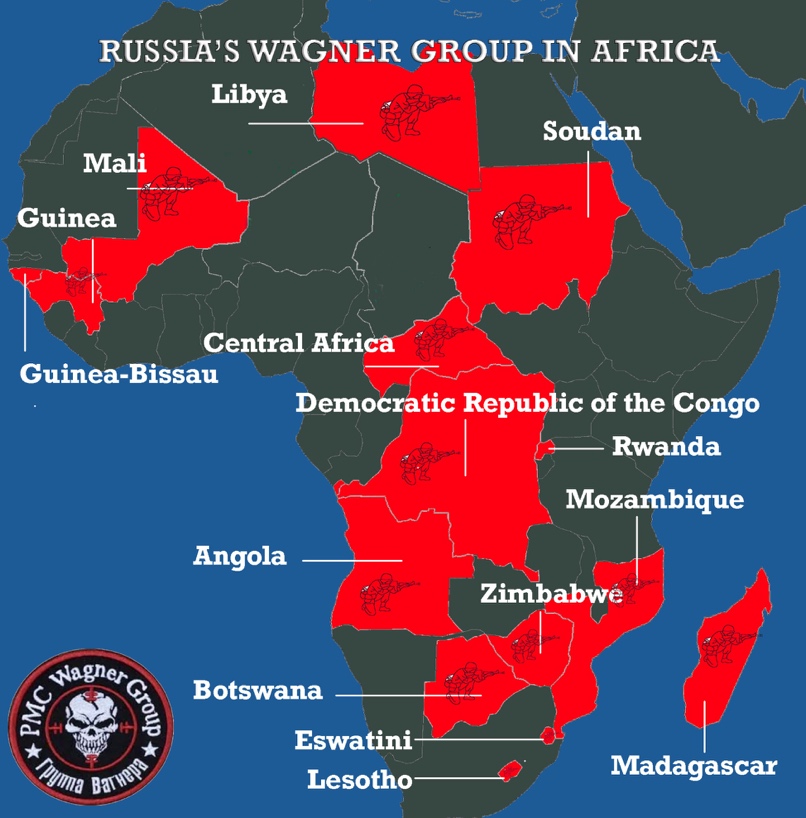
Macron spent 72 hours on a whistle-stop trip around Gabon, Angola, Congo-Brazzaville and the Democratic Republic of Congo in a bid to improve France’s image there, but it seems unlikely to have made much difference. No other European leader has visited Africa as frequently as Macron has as he struggles to put France’s colonial past behind him, but it’s still there, souring relations. History cannot simply be wiped out or erased. What happened stays happened, no matter what and it’s always possible that African leaders will wake up to the damage the Wagner Group is doing. The fact that the group is upsetting the former colonial powers may be enough for them. However, one thing that can be said is that no other leader of a former colonial power has done more to build working modern relations with the countries it had colonised than Macron for France. The Wagner Group’s approach is somewhat more direct. For example, one of the Wagner Group’s veterans in Africa is accused of organising the murders of three Russian journalists in 2018, as well as Vitalii Perfilev, a security advisor for Faustin-Archange Touadéra, President of the CAR. Under the influence of the Wagner Group, the CAR has become a vital hub of Russian influence, both economically and militarily. So what about that parcel bomb? It also contained a USB stick which exploded when it was connected to a computer, and that led to the Wagner Group blaming France or else the United States, although it was sent from Togo – which is a lovely country, by the way, populated by lovely people – by a man using a fake Spanish identity card.
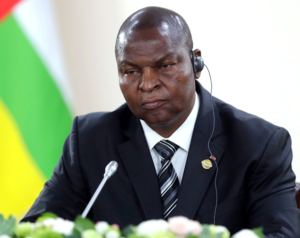
Macron seems determined to develop good relations, even with countries that had been colonised by other European powers. For example, he has visited a nightclub in Lagos known as the New Afrika Shrine, owned by an activist who is the son of a musician. In addition to Nigeria, he has also called in at Ethiopia, Kenya, South Africa and Angola and in each of them he expressed a wish to establish closer relations with France without the shadow of colonialism hanging over it. He probably still has more chance of persuading immigrants of his good intentions than would be the case for the UK. Meanwhile, however, people are being forced to flee Sudan because of a vicious internecine war between two entities: the regular Sudanese army and the so-called Rapid Support Forces. (RSF) Foreign nationals and locals are dying in what has become a fire-fight between the two. Some governments are providing flights out of Khartoum, the capital, and some are not. The trouble erupted after a coup in 2021, when the country was run by a council of generals. Sadly, they fell out. One of them, General Abdel Fattah al-Burhan, heads the official armed forces, but he has fallen out with his deputy, General Mohamed Hamdan Dagalo, also known as Hemedti. They have disagreed on the best direction for the country and how to meld the RSF into the real army as well as who would then lead it.
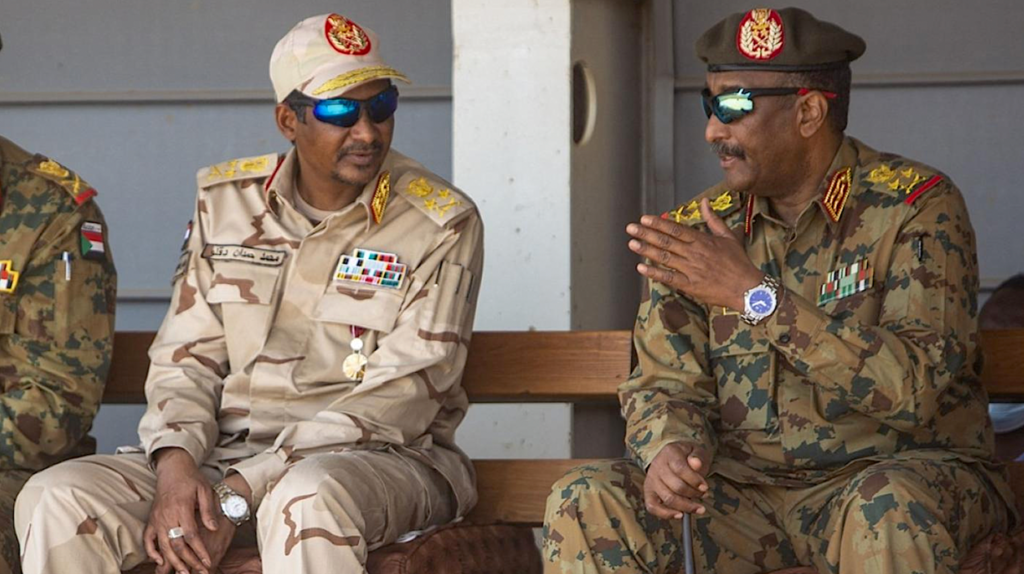
Sudan has always been a source of conflict : back in the 1880s, General Charles Gordon found himself up against the Mahdi – or at least Muhammad Ahmad, who claimed to be the Mahdi, a figure from Islamic belief who is expected to appear at the end of time for a final battle. The word actually means “the Guided”, which assumes a heavenly direction under heavenly guidance. Both men were very devout and religious. They never actually met, although Gordon of Khartoum became a hero figure in British military history. He used deception to defend Khartoum including the use of dummies to look like soldiers guarding the walls of Khartoum and set up a private telegraph service to keep the Governor informed because his enemies had sabotaged the original one. Had they met, Gordon and the Mahdi would have had a lot to talk about. Britain’s more recent history in Africa and its various colonies is not so favourable
| HOW TO BECOME REALLY UNPOPULAR
To give a potted account of what the UK did, we must go back to 1948, when thousands of people from the Caribbean islands sailed for Britain aboard the ship called the Empire Windrush. They arrived with a legal right to live and work in Great Britain permanently, but the government of the time failed, first of all, to provide legal documentation stating those rights and then, in 2010, the government back then deliberately destroyed the landing cards that could have proved the truth of their stories. Instead, the UK government instigated what it called its “hostile environment policy” in a bid to make the Windrush people feel so unwelcome that they might go home (even if they had been living in the UK for more than 60 years and had more than earned the right to call Britain “home”). Macron doesn’t have that particular hill to climb, but colonialism still leaves a stigma that’s hard to overcome. In the newspaper The New European, journalist Paul Mason refers to “the vindictive ecstasy of Suella Braverman (the Home Secretary)’s theatre of cruelty.” Strong words but perhaps not really very way surprising, given the circumstances. As Mason points out, the ruling Conservative Party purged its liberal wing during the Brexit crisis. Now the government cannot blame Brussels when things go wrong. Macron still can but doesn’t, of course. He should be pleased; Mason predicts that Braverman, having weaponised hate, will herself be sacrificed by her ruthless political colleagues.
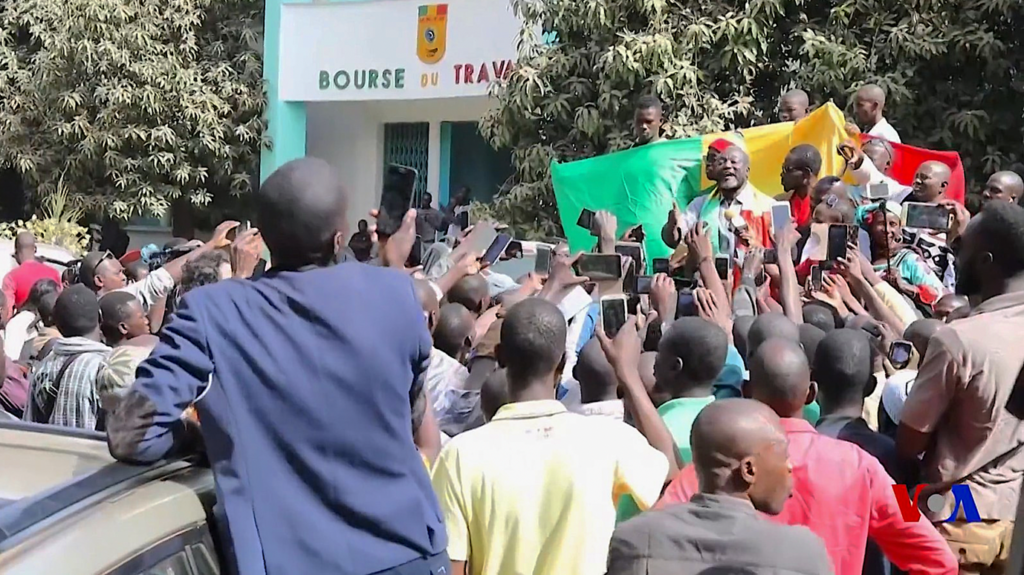
Anti-French sentiment still runs quite high in some of the former colonies, of course. Macron has stated that France must demonstrate “a profound humility” in Africa, at the same time reducing its military presence around the continent. According to a report aired on France 24: “France will end its practice of hosting regular military bases in Africa and will instead establish ‘academies’ to be co-run by French and African armies. He said there would be a notable fall in French military personnel but an increase in efforts to provide training and equipment.” Macron has said he’s “proud” of France’s record in Africa as it gradually disentangles itself, but in the Sahel, for instance, there has been a worrying rise in attacks by extreme Islamic groups. The killings they have carried out have soared by around 50% in the past year. They were clearly not the work of the Mahdi.
But it’s not only Russia that is starting to dominate the political scene in Africa. China is important, too. It was, after all, partly the newly-free countries of Africa – Europe’s former colonies – that voted with Mao at the UN to have Beijing replace Taiwan in the organisation to represent Chinese interests. Macron has been keen to establish a dialogue with Beijing because he can see relations between China and the West deteriorating, which would not be good for the EU (it wouldn’t be very good for China, either). Macron would also like to see China taking a more positive stance over Russia’s invasion of Ukraine. A spokesperson at the Élysée Palace told a press conference, just before Macron’s departure for his visit to China, that: “China is the only country in the world capable of having an immediate and radical impact on the conflict, in one direction or the other.” Don’t hold your breath, would be my advice. It may be some little while before we can truly assess the impact of Macron’s visit.
| RUSSIA’S SILLY CONDITIONS
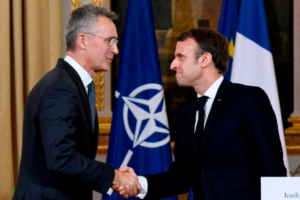
There’s plenty in this world in 2023 today that should make a lot of people ashamed, although it seems not to. In February 2022, Macron told the UN General Assembly that Russia is guilty of imperialism (or attempting it) by its illegal attack with the clear intention of annexing Ukraine. He recalled that “Russia, a permanent member of the Security Council, through an act of aggression and invasion and annexation, broke our collective security … when it deliberately violated the UN Charter and the principle of sovereign equality of states.” I don’t suppose Putin will lose much sleep over the accusation, true though it undoubtedly is. “The longer this war goes on,” Macron said, “the more it threatens Europe and the world. It could lead to greater conflict where security and sovereignty no longer depend on the strength of alliances, but on the strength of armed groups… and subjugation of others.” In other words, whoever owns the biggest guns will win. He added: “What we have seen is a return to the age of imperialism. France rejects this and will steadfastly search for peace.” Macron has tried to instigate peace talks with Russia, but Putin’s conditions are not acceptable, probably to anyone outside the Kremlin. He has basically said he’s willing to talk peace as long as it’s universally acknowledged that he has won the war and that Ukraine is now his. He hasn’t, of course, and it isn’t. Macron completely (and justifiably) rejects Putin’s ludicrous demands, but he also rejects neutrality on the invasion by some of his allies “They are wrong,” he stated bluntly. “They are making an historic error.” President Macron stated: “Those who are keeping silent today are, in a way, complicit with the cause of a new imperialism…. that is trampling the current order.”
Macron suggested that NATO had become, as he put it, “brain dead”, claiming that the commitment to the Alliance by the United States is weakening. That was his opinion as he expressed it to the Wall Street Journal aboard a presidential jet. To be honest, to call NATO “brain dead” seems just a little strong. There is still a pulse, I think. He pointed out to The Economist newspaper that the Alliance is supposed to ensure that if any one member state finds itself under attack, all the other member states will join in defending it. Macron said he was doubtful that Washington would abide by that principle and he wants all the NATO members to be “more assertive”, developing their own defence capabilities in order to “secure peace” in a region still reeling from Putin’s violence in Ukraine. He drew criticism from other member states for his comments, which seemed more designed to cause uproar than effective change.

Certainly, the Wagner Group’s operation would seem to be carefully run, if somewhat ruthless, and it oversees the export of CAR gold and diamonds mainly through the Cameroonian port of Douala. Effectively, it would seem that the Wagner Group, with Putin’s blessing, has taken over the role that was once France’s. The organisation running the exports is called Diamville, which the EU believes to be a cover company for the Wagner Group. The Russians are getting everywhere but some outside observers note that with Putin constantly changing his excuse for attacking Ukraine that other countries will start to see through him rather more readily. You will recall that he claimed he had launched his “special military operation” to de-Nazify Ukraine (despite its lack of Nazis). He now says it was because Ukraine was poised to join NATO, an organisation that despite Macron’s doubts and concerns, Putin still views as his enemy, whether it’s “brain dead” or not, in Macron’s strange assessment. But there was no talk of Ukraine joining the alliance until after Russia’s invasion and it has only now applied to join as a defence against Putin’s aggression. Putin appears to have got his timetable wrong. If Macron’s true intention was to goad France’s fellow-NATO members into taking a tougher stance, then it may be that Putin has persuaded them to do that, if only by shouting abuse and looking aggressive. Macron would certainly like to see a more assertive and self-assured NATO, less reliant on Washington in the event of a need for action.
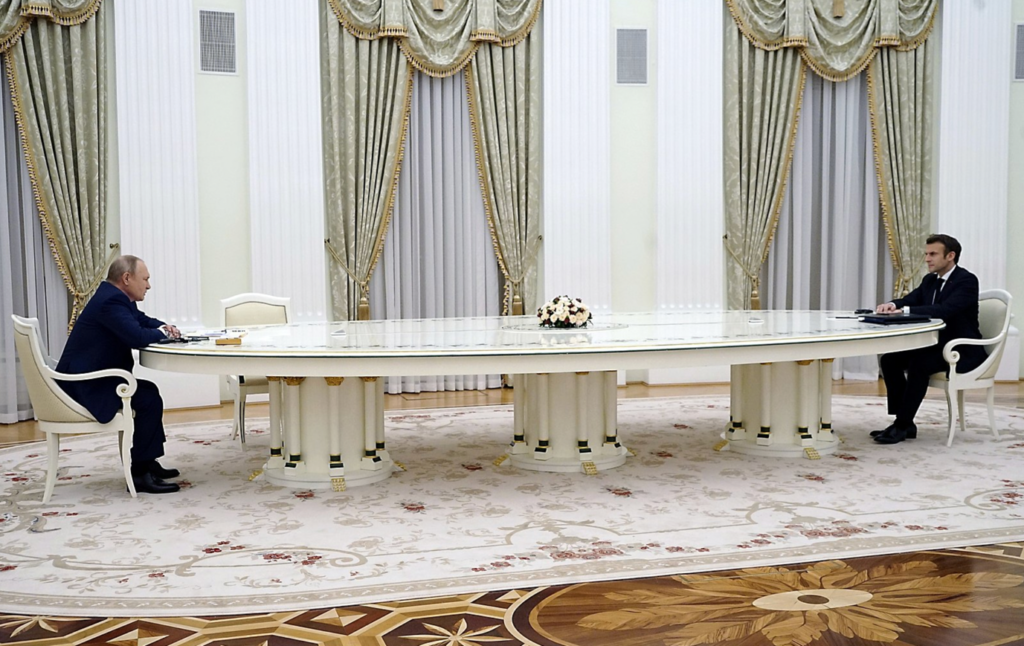
| LAW AND DISORDER
As you know (because it’s in the news every day) Macron is not universally popular in France. Even one of his favourite restaurants has been attacked by protestors, simply because he likes to eat there. Riot police had to form a barricade around La Rotonde bistro, which was briefly set on fire. It’s a very fine restaurant and its owners and customers certainly never deserved that. In fact, Macron has signed his new pension age into law anyway, after twelve days of street protests. The Nupes political alliance, a left-wing group, was one of several that lodged an appeal with the court over the reforms. Its leader, Jean-Luc Mélenchon, who is officially a Socialist but well to the left of the party, said the “fight” would continue. Elsewhere in Europe, many are wondering why Macron’s plan to raise the pension age by just two years – it will still be lower than in most other European countries – has made the French population so angry. After all, French men retire two years earlier than the European average and French women one year earlier. The level of fury and destructiveness is hard to comprehend. The French public, though, are clearly furious at Macron for tampering with their very generous system for people whose working life is coming to an end. They are exceptionally proud that French pensioners are less likely to be forced to live in poverty than those in other European states. Raising the retirement age by so little would appear to outsiders as a modest reform that will cause no poverty. The French people would clearly dispute that.
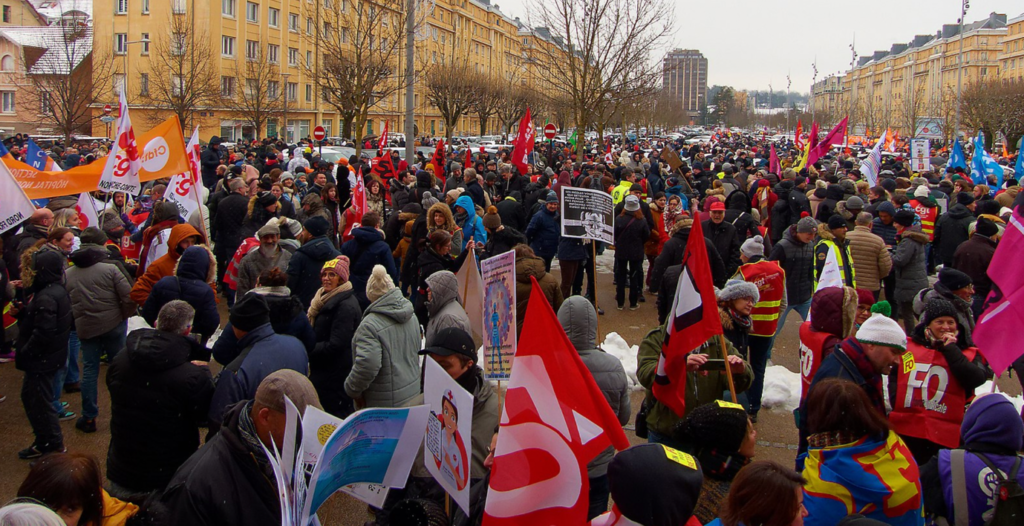
Much later in the ongoing crisis, Macron told the newspaper Le Parisien that he should have done more to tackle the economic problems of the French people. He admitted that he should have been “more involved” and that he now wants “to re-engage in the public debate”. He told the newspaper: “Perhaps the mistake was not to be present enough, to give consistency and carry this reform myself.” He’s certainly not very popular with the French people, attracting “boos” from the crowds during a walkabout in the Alsace. Macron said he had given himself a hundred days to “revive his mandate”.
That won’t be easy: even by his own calculation, the immediate economic future looks difficult, despite allowing for the fact that it’s impossible for a politician to please everyone. He has introduced the Service National Universel (SNU) and wants to ramp it up, to involve more and larger territories, but without making it all compulsory everywhere at once, which may well be impossible to achieve anyway. It will, however, be compulsory with the aim of “conveying French values” for 16 to 25-year-olds. It involves one month of voluntary service, although he admits to there being a “logistical challenge” in introducing the scheme. Being both optional and compulsory at the same time will be a tricky thing to manage. On the economic front, he wants to abolish the housing tax and the television licence as well as proposing reductions on the first tranches of income tax amounting to more than €4-billion. Macron told the media that he wants working to pay better, putting the onus on employers to bring that about.
France’s Pensions Advisory Council has said that the figures don’t support claims that pensions spending is “out of control”, and the suspicion is that Macron’s plan is to prioritise tax cuts for businesses as he struggles to get France’s national deficit below the 3% target set by the EU. In any case, the President seems to have lost the support of the people, two thirds of whom are said to be on the side of the protestors, with only 28% supporting Macron. Macron may be hoping that the violence and destruction being waged by the protestors may persuade more moderate sections of society to support him and abandon the protest, but there are no signs of that happening. In fact, there are signs – worrying for Macron – that the protest is intensifying and spreading more widely. The unpopular reform was passed without a vote, which has further stoked the fury of the crowds filling the streets.
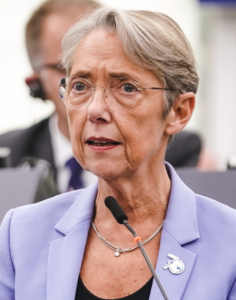
France’s Prime Minister, Elisabeth Borne, faced protestors when she visited a Paris supermarket and the angry chants drowned out her words. She remained remarkably calm. “We’re in a democracy, so everyone can express themselves,” she said to the TV news station BFM TV. “My priority is to bring calm”, she said, “and to address concrete concerns”. She then went into the store to discuss anti-inflation measures. Protests or not, the business of running the country continues, of course. The Constitutional Council approved the rise in the pension age but that clearly isn’t the end of the matter. The French have always been inclined towards highly visible shows of strength when protesting. There has been a lot of destruction, and public anger was further heightened by the government’s decision to use special powers that allowed it to by-pass a vote on the issue. That sort of behaviour never goes down well with the public. Macron has stated that he has “heard the anger” (he could hardly miss it, with crowds shouting at him in the streets all the time) but insists his controversial measures are needed “to guarantee everyone’s pension”. Some of the protestors have argued that the measures would not be necessary if Macron would increase taxes on the wealthy and on employers instead. Macron has praised the calm and restrained ways in which most people have demonstrated their opposition to his plans. “Nobody, and especially not me, can remain deaf to this demand for social justice and for our democratic life to be renovated”, he said. His only regret, he has said, is that he has failed to convince the wider public that the reforms are necessary.
| DEARER AND DEARER (BUT NOT CLEARER AND CLEARER)
What most worries those approaching retirement age in France is the speed with which prices are rising. They hear their pensions simply won’t be enough to pay for the essentials of life. As with most political problems, at the end of the day it all comes down to money. In fact, the inflation rate in France has come down slightly, to reach a 6-month low of 5.7% in March, down from 6.3% the previous month. Prices for such goods as petrol have also come down, although consumer prices rose by 0.9% in March, following a 1% rise in February. The harmonized annual inflation rate fell to 6.7% after a record high of 7.3% in February. The consumer price index in January for the EU as a whole stood at 10%, which is much better than the rate in Hungary, for instance, which reached 26.2%, with Latvia not far behind at 21.4%. The Hungarians and Latvians would appear, of the surface, to have much more to complain about. Inflation rates are lower in the Euro area – the area using the shared currency – than in the EU as a whole.
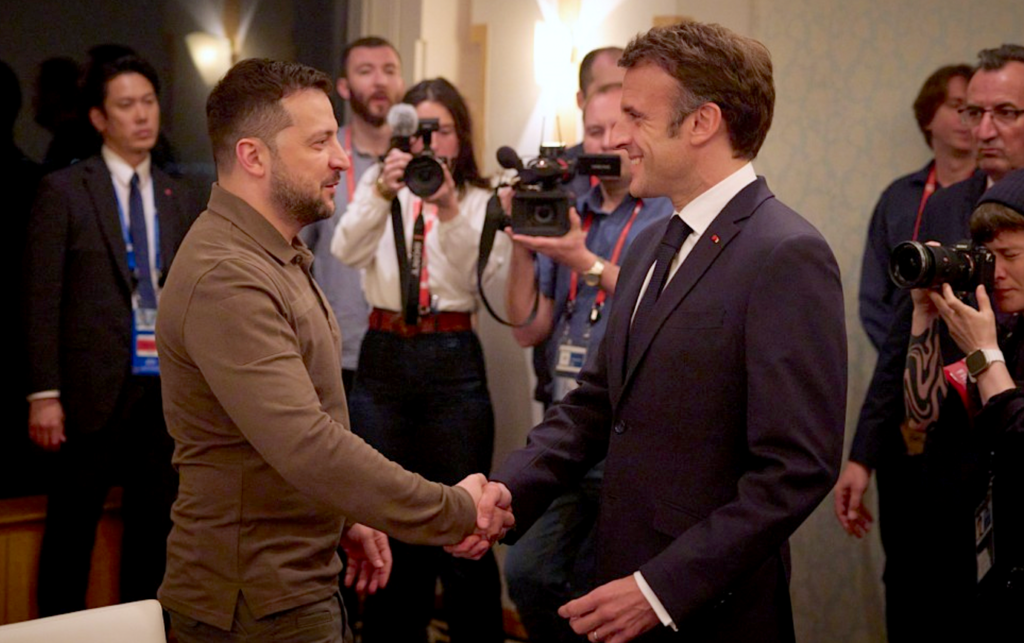
Emmanuel Macron called on the world not to be satisfied with a possible ceasefire between Kyiv and Moscow. It would be “a mistake for all of us”, because “experience has taught us that a frozen conflict will be a war for tomorrow”.
Macron, who, as I wrote earlier in this article, cannot run for office again, or at least not until 2032, insists that the changes he is bringing in – which were part of his second-term manifesto – are crucial and worth the sacrifice of his already-diminished popularity. He won’t be getting many Valentine cards next February at this rate. As pointed out earlier, French men retire two years earlier than the EU average, and French women a year earlier. Meanwhile, the cost of living index for Europe shows an inexorable climb. According to the extremely useful Expatistan Cost of Living Index in Europe, Zurich is the most expensive city. The index takes Prague as its base city, its “reference city”, with a cost of living index of 100 (Bologna in Italy gets the same score). Zurich gets a price index of 210, as does Geneva. The cheapest place on the table is Irkutsk in Russia, scoring just 38. But who would choose to live there? Paris comes in at 149, one point below Oslo in Norway. It’s a fascinating table and well worth a visit.
The French people reject tax increases as an alternative model, saying that France already has an unusually high tax burden (one of the highest in Europe, in fact), and they argue that demographic changes make some kind of change inevitable: while there were 2.1 workers for each retiree in 2000, the ratio was 1.7 in 2020 and is expected to reach 1.2 by 2070. The consumer price index in January for the EU as a whole stood at 10%. The biggest price rises seem to have been in food, alcohol and tobacco. One can certainly give up alcohol and tobacco but it’s not so easy to give up food.
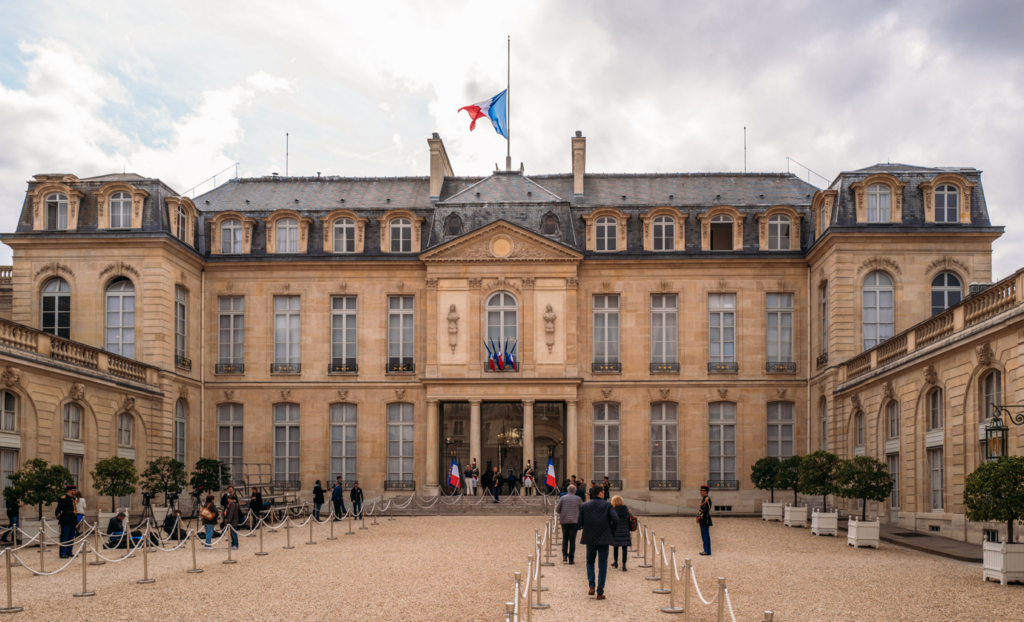
In a televised address to the nation, Macron recently told the people: “We are a people who intend to control and choose our destiny, who do not want to depend on anyone, neither on the forces of speculation, nor on foreign powers, nor on wills other than our own, and we are right.” All very laudable sentiments, but it’s an argument that doesn’t really get him off the hook over his pension reforms, which he’d intended since his election to the Presidency in 2022 but which he’d put off, knowing they’d be unpopular. How right he was! His televised speech, though, is further evidence of his concern at the thought that France could become the “lapdog” of a powerful force, such as the United States. He touted the idea in an interview in early April with Politico and with the French daily newspaper, Les Echos. He managed to ruffle feathers (perhaps especially in Washington) by saying that France must avoid becoming a “follower” of the United States. “One cannot declare its independence: it is built through ambitions, efforts at the national and European level, in terms of knowledge, research, attractiveness, technology, industry, defence. And it is financed collectively through work,” he said. In fact, as you may have noticed, it was quite a rambling sort of speech and not the most coherent on record. He also said that European and French independence is what will, as he put it, “allow us to obtain more justice”. But Macron pushed the changes through without a vote, and it will take Prime Minister Borne a lot of clever words to reassure the French people that Macron is really a democrat with the will of the people at his heart. It’s not a job I’d fancy.
So, there we have it: a government supposedly committed to “fiscal discipline”, rejecting (it would appear) foreign powers and committing to labour, law, justice and “progress” in the months ahead. I wouldn’t want Elisabeth Borne’s job in that period. I would also put a small bet on Macron not achieving re-election even in 2032. The French people have long memories. But as former British Prime Minister Harold Wilson said, back in 1954: “a week is a long time in politics”, so nine years may seem like an age but will probably go by in a flash. Who knows? He may even get back into the Élysée Palace in 2032 after all. On balance,though, I think that’s fairly unlikely. In the meantime, however, he has sought to regain control of the political process following months of protests against his proposed reforms of the pension system by promising improvements to working conditions across the country. He also said that now is the time for greater unity. I’m not sure he’ll get it.

